SCHEME OF WORK
WEEK TOPIC
1. Revision of Last Term’s Examination.
2. Comprehension/Vocabulary Development (Informal Letter writing – revision). Composition- “A letter to my best friend on my plans for this academic session” Speech Work - Short dialogues: Friendly communication (involving falling and rising intonation)
3. Comprehension / Vocabulary Development (Modifiers-Adjectives and Verbs – to do with smell e.g. aromatic acrid, etc)- English Structure, expressing/describing emotions (verbs + preposition) V + to – infinite e.g. I want to shout, verb + that clause e.g. we are surprised that you came, Composition – Descriptive essay- “My School Compound”, Speech Work, Consonants Contrast /ð/, /d/, /z/ e.g. those, dose, zoo, Literature – in – English Introduction to fiction and non-fiction (Character, mood, style, plot, etc)
4. Comprehension/Vocabulary Development (Modifiers – Adjectives and Adverbs – to do with colours e.g. silver, Sky-blue, lilac, etc.)- English Structure – describing emotions (likes and Dislikes) verb + to infinitive e.g. she loves to sing, would prefer + to infinitive e.g. I would prefer to sing rather than dance, prefer, to e.g. she prefers bikes to cars. Composition – Formal Letter Writing (revision) “A Letter to the local government chairman” asking him to tar the road to your school (introduction), Speech Work – contrast / p/ and /f/ e.g. pin, fin; etc., Literature – in – English- poetry (lyrical) use recommended text.
5. Comprehension / Vocabulary Development (Modifiers – Adjectives and Adverbs – to do with sound e.g. rattling, explosive croaking, etc.)- English Structure – expressing willingness/unwillingness – using modal verb + adverbials e.g. I will come if I’m invited, she will not come if she’s not invited, Composition – The formal letter to the local government chairman (properly written), Contrast Consonants/f/ and /v/ e.g. leaf, leave, life, live, Literature-in-English – poetry (narrative) use recommended poem.
6. Comprehension/Vocabulary Development (Modifiers – Adjectives and adverbs – to do with taste e.g. insipid, stale etc)- English Structure – expressing intention using intend, aim + to infinitive e.g. I intend to go home, we aim to reach our goal, Composition – Descriptive Essay (oral) traveling by air, Speech Work – contrast consonants /s/ and /ʃ/ e.g. sip, ship, sign, shine, ass, ash, Literature-in-English – Poetry (dramatic) use recommended poem.
7. Comprehension/Vocabulary Development (Modifiers – Adjectives and Adverbs – to do with movement e.g. swift, agile etc)- English Structure – expression permission using can, could, may, might, mind e.g. Could you please help me?, Would you mind my coming along?, Composition – A Semi-Formal letter to your class teacher on your absence from school, Speech Work – Consonant Contrast /tʃ/ and /ʃ/ e.g. watch, wash, cheat, sheep, cheap, sheet etc. Literature-in-English – Drama – (use recommended text).
8. Comprehension/Vocabulary Development (word building using Antonyms opposite and using prefixes e.g. inform – misinform)- English Structure – expressing obligation and necessity using: must, have to, need, ought to etc e.g. I ought to have done my assignment. I need to go now, Composition – debate (oral) –“corruption is worse than armed robbery”, Speech Work – consonant contrast / t∫/, /∫/, e.g. watch, wash, cheat, sheet, cheap, sheep etc. Literature-in-English – drama – use recommended text.
9. Comprehension/Vocabulary Development (Word building using prefixes –un, non, dis, mal, mis, rel, pre, ex, sub etc. e.g. suitable – unsuitable, appear - disappear, adjust – maladjust, sense – nonsense, etc.)- English Structure – expressing possibility using may, can, might, could e.g. she couldn’t have left like that, they may not travel again, Composition – debate (written) – “corruption is worse than armed robbery” Speech Work – consonants /l/ and /r/ e.g. Load, road, led, red, long, wrong, Literature-In-English –drama – use recommended text.
10. Comprehension/Vocabulary Development word building using prefixes (super, out sur, over, under, counter, anti, pro, trans, inter, hyper e.g. heated – overheated, charge – surcharge, impose –superimpose, plant – transplant, long – prolong etc.)- English Structure –expressing ability using can, be able, to, be capable of e.g. (a) she can do the job, (b) I am able to jump 3 meters, (c) they are capable of representing the school, Composition – speeches (oral and written) e.g. trouble at school, Speech Work - /h/ where h is voiced e.g. voiced e.g. voiced –house, help, hen, etc. Voiceless – hour, honour, hones, etc, Literature-In-English – drama – use recommended text.
11. Revision.
1ST TERM
WEEK 1
LESSON 1
ASPECT: SPEECH WORK
TOPIC: Short Dialogues
SUB TOPIC: Friendly Communication (Involving falling and rising intonation)
CONTENT: Exchanging Pleasantries (Dialogue)
Remember that Yes/No questions and modal auxiliaries end with a rising tune while WH questions end with a falling tune.
Read the following dialogues.
Uche: Hello, Sola. How are you? ↘
Sola: Fine thanks. ↘
Uche: it’s quite an age. Have you been out of town? ↗
Sola: Yes, I went to Abuja. ↘
Uche: Oh, you did? ↗
Sola: Yes, to visit my Uncle.↘
Uche: Oh good. How’s he?↗
Sola: He’s very well, thanks.↘
Uche: I’d better be going now. See you later.↗
Sola: Bye.↘

Teacher Pupil Dialogue
Pupil: Good morning, sir.
Teacher: How are you? Did you have a good trip?
Pupil: Fine, thank you.
Teacher: How was your trip?
Pupil: It was pleasurable, thank you.
Teacher: That’s good to know.
Pupil: Will there be class during prep today?
Teacher: I hope so, yes.
Pupil: Oh wonderful. We’re really looking forward to seeing you again?
Teacher: Thank you. See you, then.
Pupil: Thank you sir.
EVALUATION:
From the above dialogue, identify the sentences or statements with rising and falling tunes.
http://www.slideshare.net/KylenicoleEsp ... intonation
https://www.scribd.com/doc/80418321/Dis ... Intonation
LESSON 2
ASPECT: COMPOSITION
TOPIC: Informal Letter Writing
SUB TOPIC: A Letter to my Best Friend on my Plans for this Academic Session
CONTENT:
The students should be guided on how to write an informal letter on the above topic.
 Sample Informal Letter
Sample Informal Letter
EVALUATION: Write a letter to your best friend on your plans for this academic session.
LESSON 3
ASPECT: STRUCTURE
TOPIC: Conjunction and Preposition
CONTENT:
Conjunctions are words that join together words or group of words. There are three types of conjunctions.
1. Coordinating conjunction
2. Subordinating conjunction
3. Correlative conjunction
1. COORDINATING CONJUNCTIONS: AND, OR, BUT,
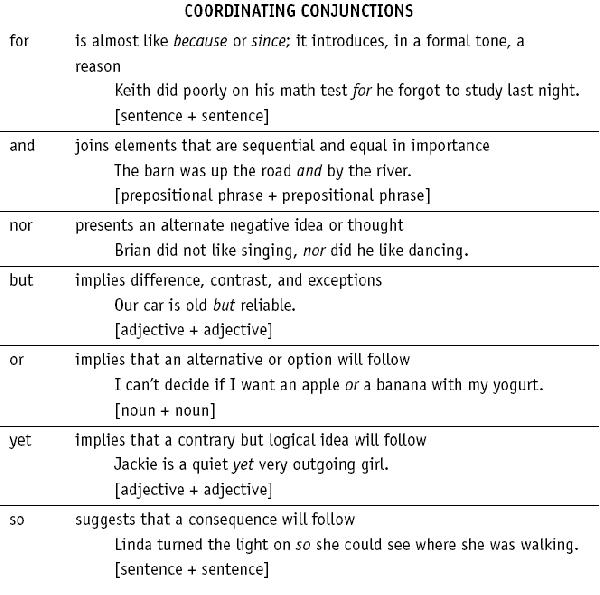
Coordinating conjunctions join words, phrases, clauses of equal status together.
i. You can go today or tomorrow.
ii. She is not good- looking but she is popular.
iii. Football and table- tennis are popular in schools
2. CORRELATIVE CONJUNCTIONS:
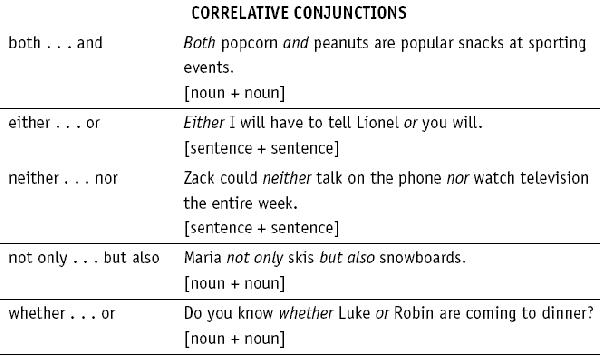
These are conjunctions that are used in pairs (i.e. in twos). They are often referred to as correlatives. Among the most common ones are: either…or, neither…nor, both…and, not only…but also.
Examples:
i. Both John and Tina are his cousins.
ii. You can either come tomorrow or send someone on Friday.
Iii. We must strive not only for academic distinction but also for good citizenship.
iv. Neither Folake nor her brother is likely to get promotion.
3. SUBORDINATING CONJUNCTIONS:
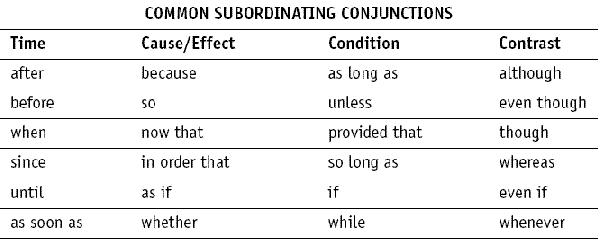
Subordinating conjunctions are also known as subordinators. Examples are:
When, although, since, after, unless, yet, until, where etc
Examples:
i. I shall see you when I come back.
ii. You should tell us where you live.
iii. Unless you work hard, you may not pass.
iv. While she was working, the child sneaked out.
PREPOSITIONS
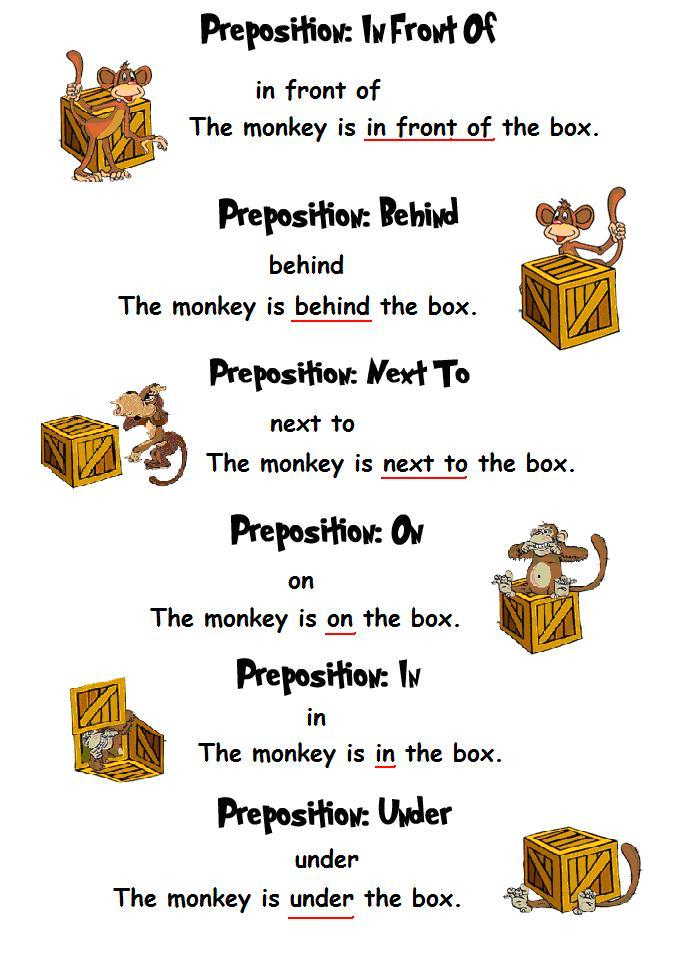
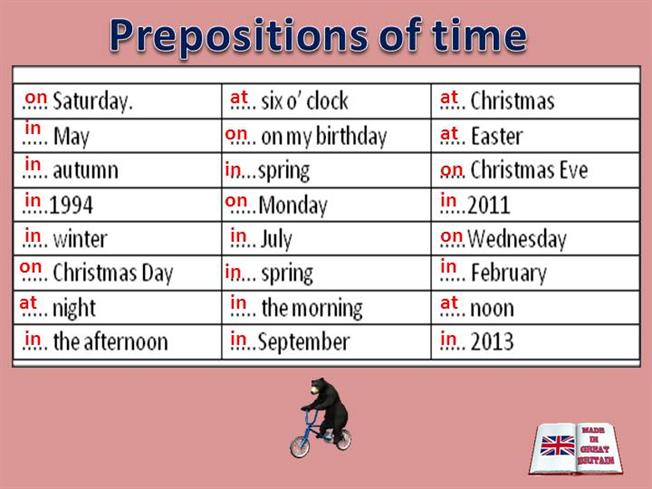
Prepositions show the relation of a noun or pronoun to some other word in the sentence. The word preposition comes from a Latin language which means ‘something placed before’ a noun. E.g. on, by, across, in, inside, beneath, against, over, behind down, upon, off, between etc.
1. The flowers on the sitting room table are very beautiful.
2. The boys in the class are brilliant.
3. The seat behind me is vacant.
4. He has gone to work with his uncle.
5. They arrived before noon.
ASSIGNMENT:
Study the poem ‘Let’s Live in Peace’ on page 38 of Literary Compass and answer the objective and essay.
Further Studies 1
Further Studies 2
Practice Test 1
Practice Test 2
ASPECT: SPEECH WORK
TOPIC: Short Dialogues
SUB TOPIC: Friendly Communication (Involving falling and rising intonation)
CONTENT: Exchanging Pleasantries (Dialogue)
Remember that Yes/No questions and modal auxiliaries end with a rising tune while WH questions end with a falling tune.
Read the following dialogues.
Uche: Hello, Sola. How are you? ↘
Sola: Fine thanks. ↘
Uche: it’s quite an age. Have you been out of town? ↗
Sola: Yes, I went to Abuja. ↘
Uche: Oh, you did? ↗
Sola: Yes, to visit my Uncle.↘
Uche: Oh good. How’s he?↗
Sola: He’s very well, thanks.↘
Uche: I’d better be going now. See you later.↗
Sola: Bye.↘

Teacher Pupil Dialogue
Pupil: Good morning, sir.
Teacher: How are you? Did you have a good trip?
Pupil: Fine, thank you.
Teacher: How was your trip?
Pupil: It was pleasurable, thank you.
Teacher: That’s good to know.
Pupil: Will there be class during prep today?
Teacher: I hope so, yes.
Pupil: Oh wonderful. We’re really looking forward to seeing you again?
Teacher: Thank you. See you, then.
Pupil: Thank you sir.
EVALUATION:
From the above dialogue, identify the sentences or statements with rising and falling tunes.
http://www.slideshare.net/KylenicoleEsp ... intonation
https://www.scribd.com/doc/80418321/Dis ... Intonation
LESSON 2
ASPECT: COMPOSITION
TOPIC: Informal Letter Writing
SUB TOPIC: A Letter to my Best Friend on my Plans for this Academic Session
CONTENT:
The students should be guided on how to write an informal letter on the above topic.
 Sample Informal Letter
Sample Informal LetterEVALUATION: Write a letter to your best friend on your plans for this academic session.
LESSON 3
ASPECT: STRUCTURE
TOPIC: Conjunction and Preposition
CONTENT:
Conjunctions are words that join together words or group of words. There are three types of conjunctions.
1. Coordinating conjunction
2. Subordinating conjunction
3. Correlative conjunction
1. COORDINATING CONJUNCTIONS: AND, OR, BUT,

Coordinating conjunctions join words, phrases, clauses of equal status together.
i. You can go today or tomorrow.
ii. She is not good- looking but she is popular.
iii. Football and table- tennis are popular in schools
2. CORRELATIVE CONJUNCTIONS:

These are conjunctions that are used in pairs (i.e. in twos). They are often referred to as correlatives. Among the most common ones are: either…or, neither…nor, both…and, not only…but also.
Examples:
i. Both John and Tina are his cousins.
ii. You can either come tomorrow or send someone on Friday.
Iii. We must strive not only for academic distinction but also for good citizenship.
iv. Neither Folake nor her brother is likely to get promotion.
3. SUBORDINATING CONJUNCTIONS:

Subordinating conjunctions are also known as subordinators. Examples are:
When, although, since, after, unless, yet, until, where etc
Examples:
i. I shall see you when I come back.
ii. You should tell us where you live.
iii. Unless you work hard, you may not pass.
iv. While she was working, the child sneaked out.
PREPOSITIONS


Prepositions show the relation of a noun or pronoun to some other word in the sentence. The word preposition comes from a Latin language which means ‘something placed before’ a noun. E.g. on, by, across, in, inside, beneath, against, over, behind down, upon, off, between etc.
1. The flowers on the sitting room table are very beautiful.
2. The boys in the class are brilliant.
3. The seat behind me is vacant.
4. He has gone to work with his uncle.
5. They arrived before noon.
ASSIGNMENT:
Study the poem ‘Let’s Live in Peace’ on page 38 of Literary Compass and answer the objective and essay.
Further Studies 1
Further Studies 2
Practice Test 1
Practice Test 2
WEEK 2
LESSON 4
ASPECT: COMPREHENSION
TOPIC: Adamu and his Beautiful Wife

CONTENT: Unit 1 Page 2-4
VOCABULARY DEVELOPMENT: Modifiers- adjectives and verbs- to do with sense of smell.
CONTENT: Sense of smell (Olfactory words): Olfactory is an adjective that refers to anything that relates to sense of smell. Olfactory words are words that have to do with your sense of smell. E.g. aromatic, fragrant, pungent, stinking, fetid, balmy, putrid, putrescent. They describe how thing smell.
i. I saw a putrescent corpse yesterday.
ii. I like aromatic leaves.
Further Studies 1
Further Studies 2
LESSON 5
ASPECT: STRUCTURE
TOPIC: Expressing/describing Emotions (verbs+ preposition) V+ to- infinitive

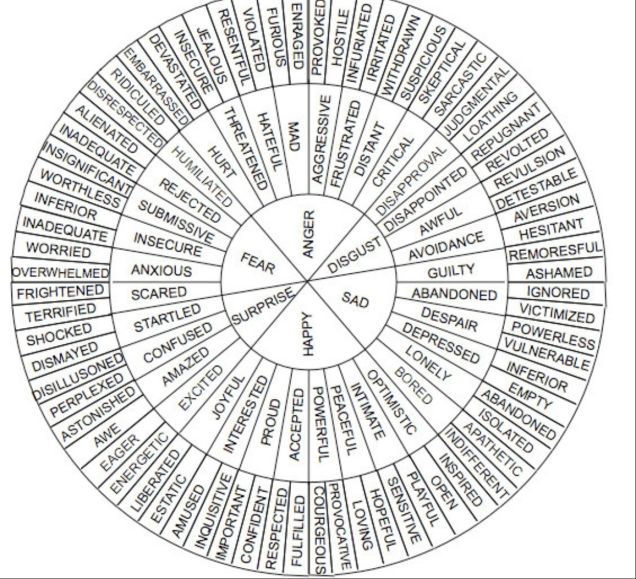
CONTENT:
Emotion is a strong feeling of love, fear, disappointment, hate, anger, etc which affects the way you do things. We can express emotions or describe emotive behaviour and feelings through the following means:

1. Using verb +preposition
e.g. i. I was bitterly disappointed with my performance.
ii. I am pleased with your work.
iii. His mother was anxious about him.
iv. I was alarmed at her behaviour.
v. You should be ashamed of yourself.
2. Using adjective/verb +to – infinitive
‘to – infinitive ‘ is the basic form of a verb which does not change in all contexts: it is not affected by time, whether past, present or future. E.g.
i. I am sorry to interrupt you. (Present)
ii. I was very anxious to meet her. (Past)
iii. I will be pleased to hear that you passed your examinations. (Future)
iv. I was bitterly disappointed to leave without seeing you.
3. Using verb + that –clause
i. We were happy that you have passed your examinations.
ii. He was delighted that he came first in English.
iii. We were surprised that you came.
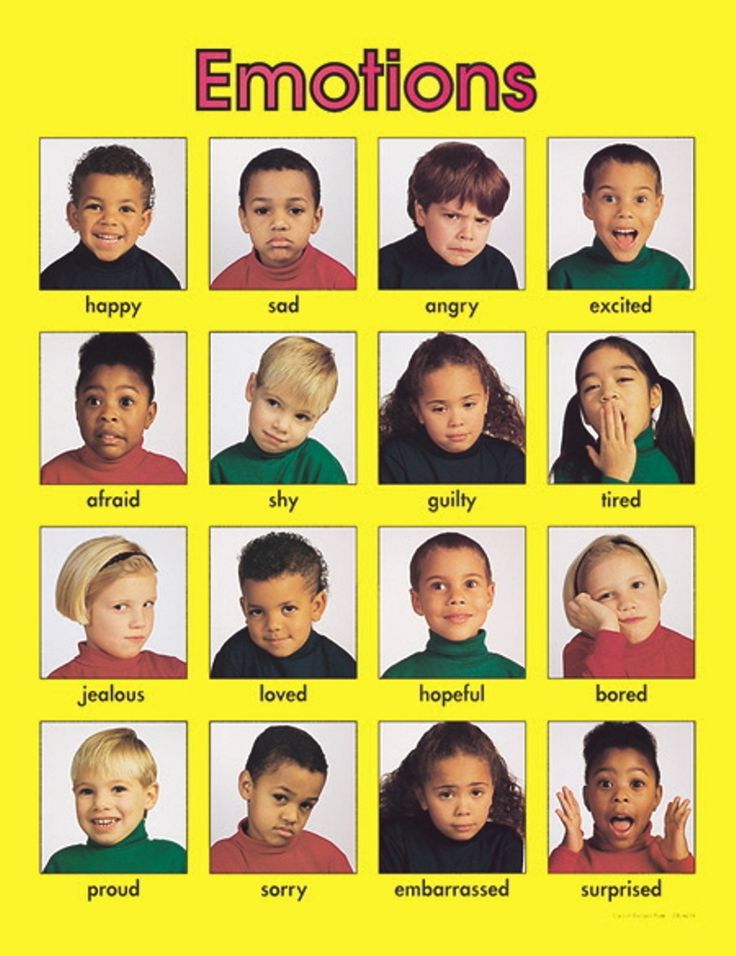
EVALUATION:
Make your sentences using these words below (the dictionary can be helpful)
Verbs+ Prepositions
1. Interested (in)
2. Certain (of, about),
3. Happy (with, about)
4. Hopeful (of, about)
5. Afraid (of)
Further Studies 1
Further Studies 2
LESSON 6
ASPECT: COMPOSITION
TOPIC: Descriptive Essay
SUB TOPIC: My School Compound

CONTENT:
Writing an essay on my school is not difficult since you already know your school in and out; however, making further observations can be helpful. You need to gather important facts about the school, if you don't know already, in order to be able to write about it. This article helps you to write an essay on my school with tips and questions that need to be answered in order to write a winning essay on my school.
How to write an essay on my school?
The introduction of the essay on my school should begin with the name of the school, its location and other simple information about the school.
The body of the essay on my school is where you answer majority of the questions about the school. This is the part of the essay on my school where you answer questions like
Describe the school building location.
Describe the building from the outside.
Describe the departments and their locations (floor).
Describe the school's surroundings.
Describe the school from inside.
Describe the students in the school.
Describe the kind of results that the students in this school get. Describe the competitive spirit in the students.
Describe the curricular activities.
Describe the school's education system in terms of whether it makes use of online learning management system.
Describe the faculty.
Describe the standard of education provided.
Describe other facilities provided by the school.
The description of items as mentioned above should help describe the school and the level of education there in an essay on my school. However, it is important to note that these points need to be organized well before beginning to write the body of the essay on my school.
The final part of the essay on my school is the conclusion where you can express your own opinions and feelings about the school.
LESSON 7
ASPECT: SPEECH WORK
TOPIC: Consonant Contrast /ð/, /d/, /z/
CONTENT:
/ð/: This is a voiced dental fricative. Word examples are those, father, loathes, clothes …
voiced - th
then
this
those
bathe
breathe
weather
father
https://youtu.be/HhYGp6mhuh8
/d/: voiced alveolar plosive. Word examples are bread, made, dark, indigo, Eddie, advert …
d----dd
day--add
idle-Eddie
paid-Daddy
advert
https://youtu.be/qA5ZYC89oso
/d/ appear the same in written and spoken form except for the silent -ed morpheme that produced a /d/ sound
/z/: voiced alveolar fricative. Word examples are sisters, twins, wise, ways, baize, lazy …
z-------s-----ss
zebra—--present--assume
zoo-----raise----assumption
amazing-twins
azure---boys
zip-----rose
https://youtu.be/o1ZvmX80t7Q
Sound contrast:
/ð/ ...../d/ ..... /z/
Breathe ..... breed ..... breeze
Writhe ..... ride ..... rise
Lithe ..... lied ..... lies
Bathe ..... bayed ..... baize
Scythe/said/ ..... side ..... size
Though ..... doe.....doze
lathe ..... Lady ..... lazy
Loathe ..... load ..... lows
EVALUATION: From the words lettered A-D, choose the word that contains the sound represented by the given phonetic symbol.
1. /ð/ a. dose b. weight c. worth d. worthy
2. /d/ a. bond b. then c. whose d. corps
3. /z/ a. brother b. ladder c. medicine d. reason
4. /ð/ a. earth b. soothe c. thin d. tin
5. /z/ a. paparazzo b. sugar c. seizure d. president
Further Studies
LESSON 8
ASPECT: LITERATURE
TOPIC: INTRODUCTION TO FICTION AND NON FICTION
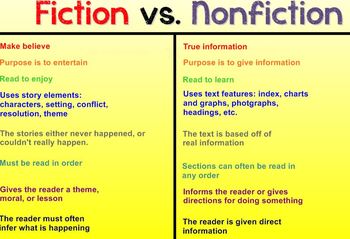
CONTENT:
Fiction is a story that is created from your imagination.
Nonfiction is a true story about real people and real events.
A novel may be a fiction or a non-fiction.
FICTION is a story describing imagery event and people. The place and characters in the novel are entirely unreal. Novel such as Sugar Girl, Animal Farm, The Concubine, The Boy Slave are all fictions.
NON-FICTION is a true story of life. It is categorized into two types: biography and autobiography.
BIOGRAPHY refers to a story written by somebody on the life history of somebody else. E.g. Charles Dickens’ Oliver Twist
AUTOBIOGRAPHY refers to a story on the life history of a person written by him or herself E.g. Camera Laye’s The African Child, Kenneth Kaunda’s Zambia Shall Be Free.
Mood: This is the state of mind of the author. This is revealed in the kind of tension which is conveyed in the work. The mood can be that of sadness, happiness, sorrow, e.t.c.
Plot: This is the organization of the events in a literary work. The organization of events follows the principle of cause and effect. An event takes place because of another effect which had taken place before it.
ASSIGNMENT:
A. Fill the gap in each sentence with the correct word chosen from the options given.
1. She is familiar -------- the topic.(to ,with, on)
2. Do not interfere---- in my business. (on, in, with)
3. She complained ----- headache. (of, for, from)
4. The principal was lenient ----- the students. (with, on, towards)
5. Let us complain -------- the new teacher. (with, to, for)
B. Study the prose ‘Out of his Mind’ by Bayo Adebowale and answer the objective questions in Literary Compass.
ASPECT: COMPREHENSION
TOPIC: Adamu and his Beautiful Wife

CONTENT: Unit 1 Page 2-4
VOCABULARY DEVELOPMENT: Modifiers- adjectives and verbs- to do with sense of smell.
CONTENT: Sense of smell (Olfactory words): Olfactory is an adjective that refers to anything that relates to sense of smell. Olfactory words are words that have to do with your sense of smell. E.g. aromatic, fragrant, pungent, stinking, fetid, balmy, putrid, putrescent. They describe how thing smell.
i. I saw a putrescent corpse yesterday.
ii. I like aromatic leaves.
Further Studies 1
Further Studies 2
LESSON 5
ASPECT: STRUCTURE
TOPIC: Expressing/describing Emotions (verbs+ preposition) V+ to- infinitive


CONTENT:
Emotion is a strong feeling of love, fear, disappointment, hate, anger, etc which affects the way you do things. We can express emotions or describe emotive behaviour and feelings through the following means:

1. Using verb +preposition
e.g. i. I was bitterly disappointed with my performance.
ii. I am pleased with your work.
iii. His mother was anxious about him.
iv. I was alarmed at her behaviour.
v. You should be ashamed of yourself.
2. Using adjective/verb +to – infinitive
‘to – infinitive ‘ is the basic form of a verb which does not change in all contexts: it is not affected by time, whether past, present or future. E.g.
i. I am sorry to interrupt you. (Present)
ii. I was very anxious to meet her. (Past)
iii. I will be pleased to hear that you passed your examinations. (Future)
iv. I was bitterly disappointed to leave without seeing you.
3. Using verb + that –clause
i. We were happy that you have passed your examinations.
ii. He was delighted that he came first in English.
iii. We were surprised that you came.

EVALUATION:
Make your sentences using these words below (the dictionary can be helpful)
Verbs+ Prepositions
1. Interested (in)
2. Certain (of, about),
3. Happy (with, about)
4. Hopeful (of, about)
5. Afraid (of)
Further Studies 1
Further Studies 2
LESSON 6
ASPECT: COMPOSITION
TOPIC: Descriptive Essay
SUB TOPIC: My School Compound

CONTENT:
Writing an essay on my school is not difficult since you already know your school in and out; however, making further observations can be helpful. You need to gather important facts about the school, if you don't know already, in order to be able to write about it. This article helps you to write an essay on my school with tips and questions that need to be answered in order to write a winning essay on my school.
How to write an essay on my school?
The introduction of the essay on my school should begin with the name of the school, its location and other simple information about the school.
The body of the essay on my school is where you answer majority of the questions about the school. This is the part of the essay on my school where you answer questions like
Describe the school building location.
Describe the building from the outside.
Describe the departments and their locations (floor).
Describe the school's surroundings.
Describe the school from inside.
Describe the students in the school.
Describe the kind of results that the students in this school get. Describe the competitive spirit in the students.
Describe the curricular activities.
Describe the school's education system in terms of whether it makes use of online learning management system.
Describe the faculty.
Describe the standard of education provided.
Describe other facilities provided by the school.
The description of items as mentioned above should help describe the school and the level of education there in an essay on my school. However, it is important to note that these points need to be organized well before beginning to write the body of the essay on my school.
The final part of the essay on my school is the conclusion where you can express your own opinions and feelings about the school.
LESSON 7
ASPECT: SPEECH WORK
TOPIC: Consonant Contrast /ð/, /d/, /z/
CONTENT:
/ð/: This is a voiced dental fricative. Word examples are those, father, loathes, clothes …
voiced - th
then
this
those
bathe
breathe
weather
father
https://youtu.be/HhYGp6mhuh8
/d/: voiced alveolar plosive. Word examples are bread, made, dark, indigo, Eddie, advert …
d----dd
day--add
idle-Eddie
paid-Daddy
advert
https://youtu.be/qA5ZYC89oso
/d/ appear the same in written and spoken form except for the silent -ed morpheme that produced a /d/ sound
/z/: voiced alveolar fricative. Word examples are sisters, twins, wise, ways, baize, lazy …
z-------s-----ss
zebra—--present--assume
zoo-----raise----assumption
amazing-twins
azure---boys
zip-----rose
https://youtu.be/o1ZvmX80t7Q
Sound contrast:
/ð/ ...../d/ ..... /z/
Breathe ..... breed ..... breeze
Writhe ..... ride ..... rise
Lithe ..... lied ..... lies
Bathe ..... bayed ..... baize
Scythe/said/ ..... side ..... size
Though ..... doe.....doze
lathe ..... Lady ..... lazy
Loathe ..... load ..... lows
EVALUATION: From the words lettered A-D, choose the word that contains the sound represented by the given phonetic symbol.
1. /ð/ a. dose b. weight c. worth d. worthy
2. /d/ a. bond b. then c. whose d. corps
3. /z/ a. brother b. ladder c. medicine d. reason
4. /ð/ a. earth b. soothe c. thin d. tin
5. /z/ a. paparazzo b. sugar c. seizure d. president
Further Studies
LESSON 8
ASPECT: LITERATURE
TOPIC: INTRODUCTION TO FICTION AND NON FICTION

CONTENT:
Fiction is a story that is created from your imagination.
Nonfiction is a true story about real people and real events.
A novel may be a fiction or a non-fiction.
FICTION is a story describing imagery event and people. The place and characters in the novel are entirely unreal. Novel such as Sugar Girl, Animal Farm, The Concubine, The Boy Slave are all fictions.
NON-FICTION is a true story of life. It is categorized into two types: biography and autobiography.
BIOGRAPHY refers to a story written by somebody on the life history of somebody else. E.g. Charles Dickens’ Oliver Twist
AUTOBIOGRAPHY refers to a story on the life history of a person written by him or herself E.g. Camera Laye’s The African Child, Kenneth Kaunda’s Zambia Shall Be Free.
Mood: This is the state of mind of the author. This is revealed in the kind of tension which is conveyed in the work. The mood can be that of sadness, happiness, sorrow, e.t.c.
Plot: This is the organization of the events in a literary work. The organization of events follows the principle of cause and effect. An event takes place because of another effect which had taken place before it.
ASSIGNMENT:
A. Fill the gap in each sentence with the correct word chosen from the options given.
1. She is familiar -------- the topic.(to ,with, on)
2. Do not interfere---- in my business. (on, in, with)
3. She complained ----- headache. (of, for, from)
4. The principal was lenient ----- the students. (with, on, towards)
5. Let us complain -------- the new teacher. (with, to, for)
B. Study the prose ‘Out of his Mind’ by Bayo Adebowale and answer the objective questions in Literary Compass.
WEEK 3
LESSON 9
ASPECT: COMPREHENSION
TOPIC: PEN PALS
CONTENT: Unit 2 pages 12-14
Pen friend, or pen pal as they are often called in newspapers or magazines, is a friend you write to from time to time. You may never meet him or her, but you can develop a good friendship by writing letters to each other. Below is a pen pal advertisement.
PEN PALS: Eddie Richards, 14, seeks pen pals of either sex from Nigeria. His interests are cycling, music, reading and karate. His address is: 47 Woolwich High Road, Charlton, London SE3 6DS, England.
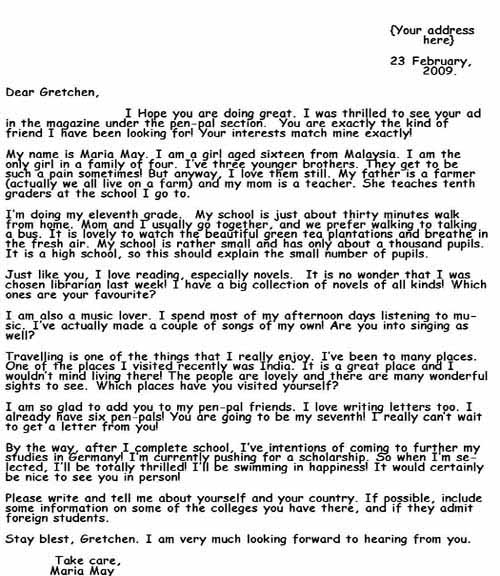
EVALUATION:
Read Taiwo’s letter and answer questions 1, 3, 5, 6, 11 and 12
VOCABULARY DEVELOPMENT: Modifiers- Adjectives and adverbs- to do with colour
Sense of sight: Describing colour e.g. red, creamy, sky-blue, indigo, lilac, golden, grey, silver etc.
i. I have a grey skirt and a lilac shirt.
ii. I saw a golden wrist watch on the desk.
Further Studies 1
Further Studies 2
LESSON 10
ASPECT: STRUCTURE
TOPIC: Describing Emotions (likes and dislikes) verb+ to- infinitive

CONTENT:
In the previous lesson on structure, we learnt how to express emotions using certain structural forms. In this lesson, we shall learn how to express our likes and dislikes using other forms.
1. Using verbs + to- infinitive
a. I would like to have a cup of coffee.
b. I hope to be there soon.
c. He loves to drive big cars.
d. She hates to read at night.
Further Studies 1
2. Expressing preference: ‘would prefer’, ‘would rather’, ‘rather than’, ‘instead of’.
a. I prefer horses to donkey.
b. I prefer riding horses to riding donkeys.
c. I prefer to ride horses rather than to ride donkeys.
d. Rather than ride donkeys, I prefer to ride horses.
e. I have always preferred riding horses instead of riding donkeys.
f. I would prefer to ride horses rather than donkeys.
g. I would rather I rode horses than donkeys.
h. I will ride horses rather than donkeys.
i. I would rather ride horses than donkeys.

EVALUATION:
1. I prefer ----------- to dancing. (to read, reading, to have read)
2. I would rather -------- horses than donkeys. (ride, rode, to ride)
3. Rather than eat beans, I prefer ---------- rice. (eat, to eat, eating)
4. I prefer to dance rather than---------- .(playing, to play)
5. I would prefer -------- tea rather than coffee. (to drink, drinking)
Further Studies 2
Further Studies 3
LESSON 11
ASPECT: SPEECH WORK
TOPIC: Contrast /p/ and /f/
CONTENT:
/p/ is a voiceless bilabial plosive. Word examples are tap , loop, rip, mop…
/f/ is a voiceless labio-dental fricative. Word examples are farm, fish, phone, philosophy, tough…
Contrast /p/ /f/
Pin fin
Pen fen
Pit fit
Pile file
Pill fill
Beep beef
Proper proffer
https://youtu.be/W3bI_PE_kNc
https://youtu.be/4VcU0zNJUiU
LESSON 12
ASPECT: COMPOSITION
TOPIC: Formal Letter Writing
CONTENT:
Write a letter to the local government chairman asking him to tar the road to your school. (Introduction)
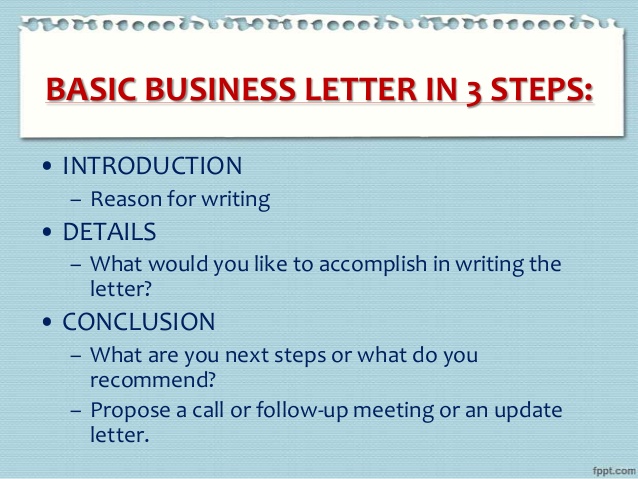
LESSON 13
ASPECT: LITERATURE
TOPIC: Poetry (Lyrical Use)
CONTENT:
Lyric is a short poem that expresses the poet’s thought and feelings. It can be set to music and song. It is in song form, it has rhyme and rhythm. It has vivid imagery and some lines are repetitive. E.g. David Diop ‘Africa’.
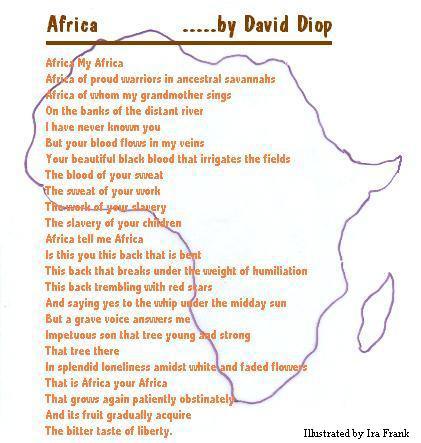
Study the poem, ‘Africa’ by David Diop in Literary Compass.
Further Studies 1
Further Studies 2
ASPECT: COMPREHENSION
TOPIC: PEN PALS
CONTENT: Unit 2 pages 12-14
Pen friend, or pen pal as they are often called in newspapers or magazines, is a friend you write to from time to time. You may never meet him or her, but you can develop a good friendship by writing letters to each other. Below is a pen pal advertisement.
PEN PALS: Eddie Richards, 14, seeks pen pals of either sex from Nigeria. His interests are cycling, music, reading and karate. His address is: 47 Woolwich High Road, Charlton, London SE3 6DS, England.

EVALUATION:
Read Taiwo’s letter and answer questions 1, 3, 5, 6, 11 and 12
VOCABULARY DEVELOPMENT: Modifiers- Adjectives and adverbs- to do with colour
Sense of sight: Describing colour e.g. red, creamy, sky-blue, indigo, lilac, golden, grey, silver etc.
i. I have a grey skirt and a lilac shirt.
ii. I saw a golden wrist watch on the desk.
Further Studies 1
Further Studies 2
LESSON 10
ASPECT: STRUCTURE
TOPIC: Describing Emotions (likes and dislikes) verb+ to- infinitive

CONTENT:
In the previous lesson on structure, we learnt how to express emotions using certain structural forms. In this lesson, we shall learn how to express our likes and dislikes using other forms.
1. Using verbs + to- infinitive
a. I would like to have a cup of coffee.
b. I hope to be there soon.
c. He loves to drive big cars.
d. She hates to read at night.
Further Studies 1
2. Expressing preference: ‘would prefer’, ‘would rather’, ‘rather than’, ‘instead of’.
a. I prefer horses to donkey.
b. I prefer riding horses to riding donkeys.
c. I prefer to ride horses rather than to ride donkeys.
d. Rather than ride donkeys, I prefer to ride horses.
e. I have always preferred riding horses instead of riding donkeys.
f. I would prefer to ride horses rather than donkeys.
g. I would rather I rode horses than donkeys.
h. I will ride horses rather than donkeys.
i. I would rather ride horses than donkeys.

EVALUATION:
1. I prefer ----------- to dancing. (to read, reading, to have read)
2. I would rather -------- horses than donkeys. (ride, rode, to ride)
3. Rather than eat beans, I prefer ---------- rice. (eat, to eat, eating)
4. I prefer to dance rather than---------- .(playing, to play)
5. I would prefer -------- tea rather than coffee. (to drink, drinking)
Further Studies 2
Further Studies 3
LESSON 11
ASPECT: SPEECH WORK
TOPIC: Contrast /p/ and /f/
CONTENT:
/p/ is a voiceless bilabial plosive. Word examples are tap , loop, rip, mop…
/f/ is a voiceless labio-dental fricative. Word examples are farm, fish, phone, philosophy, tough…
Contrast /p/ /f/
Pin fin
Pen fen
Pit fit
Pile file
Pill fill
Beep beef
Proper proffer
https://youtu.be/W3bI_PE_kNc
https://youtu.be/4VcU0zNJUiU
LESSON 12
ASPECT: COMPOSITION
TOPIC: Formal Letter Writing
CONTENT:
Write a letter to the local government chairman asking him to tar the road to your school. (Introduction)

LESSON 13
ASPECT: LITERATURE
TOPIC: Poetry (Lyrical Use)
CONTENT:
Lyric is a short poem that expresses the poet’s thought and feelings. It can be set to music and song. It is in song form, it has rhyme and rhythm. It has vivid imagery and some lines are repetitive. E.g. David Diop ‘Africa’.

Study the poem, ‘Africa’ by David Diop in Literary Compass.
Further Studies 1
Further Studies 2
WEEK 4
LESSON 14
ASPECT: COMPREHENSION
TOPIC: MOREMI
CONTENT: Unit 3 Pages 22-24

A legend is a very old story about great deeds, or people, which is based at least partly on truth. This story is part history, part legend. It is still commemorated annually at life.
VOCABULARY DEVELOPMENT: Modifiers- Adjectives and adverbs- to do with sound
CONTENT: Sense of hearing: describing sound. E. g. explosive, sonorous, melodic, croaking, mellifluous, cacophonous, inaudible, loud, thunderous.
Further Study
LESSON 15
ASPECT: STRUCTURE
TOPIC: Expressing Willingness/Unwillingness USING MODAL VERB+ADVERBIALS
CONTENT:
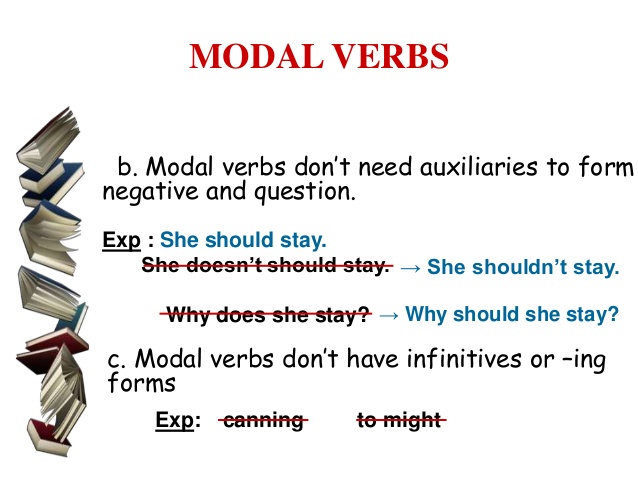
Using modal verb and adverbials to express willingness and unwillingness ‘will, would, won’t, wouldn’t, shall, shan’t’
1. Use shall and shan’t with the pronouns ‘I’ or ‘we’ to indicate (neutral) future time without any expression of determination or a strong willingness to do something.
a. I shall be seeing you tomorrow.
b. We shall be at school tomorrow.
c. I shan’t be staying long at school tomorrow.
2. Use ‘will’ and ‘won’t’ with the pronouns ‘I’ and ‘we’ to show determination, intention, a promise, an assurance, insistence, strong willingness etc.
a. Will be there tomorrow, whether you like it or not.
b. We will win the match, we promise.
c. I won’t be intimidated.
3. ‘Would’ and ‘wouldn’t’ can be used to express willingness refusal:
a. They would do anything for their parent.
b. They wouldn’t heed my advice.
4. When you use ‘he’, ‘she’, and ‘they’ with ‘shall’ you are expressing a strong willingness or giving orders.
a. He shall be giving back his property (i.e you are willing to see that he gets back his property).
b. You shall remain there until further notice.
c. They shall do as they are told.
5. On the other hand when he you and they are used with will the neutral future time is being expressed: that is, with no indication of determination, insistence, willingness, etc.
a. Uche: I will drown no one shall save me#
b. Fisherman: In that case, I assume that you intend to commit suicide and are determined not to be rescued.
c. Uche: Help! I’m drowning.
d. Fisherman: Now, I must rescue you at once.
B. Using adjective and adverbials to express willingness or unwillingness
a. I am willing to be there tomorrow. (adj.)
b. She was unwilling to admit her guilt. (adj.)
c. He willingly admitted his guilt. (adv.)
d. She gave him the money unwillingly. (adv.)
LESSON 16
ASPECT: SPEECH WORK
TOPIC: CONTRAST CONSONANTS /f/ and /v/
CONTENT:
Description of /f/
The production of /f/ involves the front upper teeth and the lower lips. There is no vibration of the vocal cord because the glottis is wide open during the production of /f/. The consonant is, therefore, a voiceless labio-dental fricative. Examples:
‘f’ as in feet, fight, five, life, strife, leaflet, chief, thief, knife, etc
‘ph’ as in physics, phone, photo, phase, phobia, phonology, nephew, gramophone, elephant, graph, etc
‘gh’ as in laugh, enough, rough, tough, cough, draught, etc
‘ff’ as in off, stiff, stuff, puff, chaff, bluff, reshuffle, etc
https://youtu.be/4VcU0zNJUiU
Consonant /v/:
This sound is realized by the contact between the lower lip and the upper front teeth. There is vibration in the glottis as the air escapes the vocal cords. It is otherwise called a voiced labiodental fricative. Examples: van, view, naïve, weave, starve, hive, serve, save, verb etc.
https://youtu.be/0W5PcWptfYY
CONTRAST
/f/ ---- /v/
Fine ---- Vine
Fast ---- Vast
Fan ---- Van
Few ---- View
Fault ---- Vaults
Ferry ---- Very
Serf ---- Serve
Safe ---- Save
Staff ---- Starve
Belief ---- Believe
Strife ---- Strive
https://youtu.be/v4sxPfRKQ7o
EVALUATION:
Fill the blank spaces:
1. ----------- is a voiced labiodentals fricative.
2. ---------- is a voiceless labiodentals fricative.
3. Underline the /f/ and /v/ occurrence in the following words: of, offer, tough, voucher.
ASSIGNMENT:
From the words lettered A-D, choose the word that has the SAME CONSONANT SOUND(S) as the one represented by the letter(s) underlined.
1. phone ----- A. kiss B. reveal C. fish D. alone
2. Of ----- A. Vision B. offer C. phase D. mission
3. Photograph ----- A. Volleyball B. voyage C. football D. religion
4. Verse ----- A. off B. of C. often D. first
5. Physics ----- A. thin B. vast C. fish D. visits
6. Cough ----- A. bought B. love C. ghost D. feed
7. Fault ----- A. vault B. free C. though D. dough
8. Tough ----- A. dough B. though C. leather D. phase
9. Van ----- A. reason B. elephant C. fan D. verse
10. Strife ----- A. strive B. verify C. phrase D. brief
ASPECT: COMPREHENSION
TOPIC: MOREMI
CONTENT: Unit 3 Pages 22-24

A legend is a very old story about great deeds, or people, which is based at least partly on truth. This story is part history, part legend. It is still commemorated annually at life.
VOCABULARY DEVELOPMENT: Modifiers- Adjectives and adverbs- to do with sound
CONTENT: Sense of hearing: describing sound. E. g. explosive, sonorous, melodic, croaking, mellifluous, cacophonous, inaudible, loud, thunderous.
Further Study
LESSON 15
ASPECT: STRUCTURE
TOPIC: Expressing Willingness/Unwillingness USING MODAL VERB+ADVERBIALS
CONTENT:

Using modal verb and adverbials to express willingness and unwillingness ‘will, would, won’t, wouldn’t, shall, shan’t’
1. Use shall and shan’t with the pronouns ‘I’ or ‘we’ to indicate (neutral) future time without any expression of determination or a strong willingness to do something.
a. I shall be seeing you tomorrow.
b. We shall be at school tomorrow.
c. I shan’t be staying long at school tomorrow.
2. Use ‘will’ and ‘won’t’ with the pronouns ‘I’ and ‘we’ to show determination, intention, a promise, an assurance, insistence, strong willingness etc.
a. Will be there tomorrow, whether you like it or not.
b. We will win the match, we promise.
c. I won’t be intimidated.
3. ‘Would’ and ‘wouldn’t’ can be used to express willingness refusal:
a. They would do anything for their parent.
b. They wouldn’t heed my advice.
4. When you use ‘he’, ‘she’, and ‘they’ with ‘shall’ you are expressing a strong willingness or giving orders.
a. He shall be giving back his property (i.e you are willing to see that he gets back his property).
b. You shall remain there until further notice.
c. They shall do as they are told.
5. On the other hand when he you and they are used with will the neutral future time is being expressed: that is, with no indication of determination, insistence, willingness, etc.
a. Uche: I will drown no one shall save me#
b. Fisherman: In that case, I assume that you intend to commit suicide and are determined not to be rescued.
c. Uche: Help! I’m drowning.
d. Fisherman: Now, I must rescue you at once.
B. Using adjective and adverbials to express willingness or unwillingness
a. I am willing to be there tomorrow. (adj.)
b. She was unwilling to admit her guilt. (adj.)
c. He willingly admitted his guilt. (adv.)
d. She gave him the money unwillingly. (adv.)
LESSON 16
ASPECT: SPEECH WORK
TOPIC: CONTRAST CONSONANTS /f/ and /v/
CONTENT:
Description of /f/
The production of /f/ involves the front upper teeth and the lower lips. There is no vibration of the vocal cord because the glottis is wide open during the production of /f/. The consonant is, therefore, a voiceless labio-dental fricative. Examples:
‘f’ as in feet, fight, five, life, strife, leaflet, chief, thief, knife, etc
‘ph’ as in physics, phone, photo, phase, phobia, phonology, nephew, gramophone, elephant, graph, etc
‘gh’ as in laugh, enough, rough, tough, cough, draught, etc
‘ff’ as in off, stiff, stuff, puff, chaff, bluff, reshuffle, etc
https://youtu.be/4VcU0zNJUiU
Consonant /v/:
This sound is realized by the contact between the lower lip and the upper front teeth. There is vibration in the glottis as the air escapes the vocal cords. It is otherwise called a voiced labiodental fricative. Examples: van, view, naïve, weave, starve, hive, serve, save, verb etc.
https://youtu.be/0W5PcWptfYY
CONTRAST
/f/ ---- /v/
Fine ---- Vine
Fast ---- Vast
Fan ---- Van
Few ---- View
Fault ---- Vaults
Ferry ---- Very
Serf ---- Serve
Safe ---- Save
Staff ---- Starve
Belief ---- Believe
Strife ---- Strive
https://youtu.be/v4sxPfRKQ7o
EVALUATION:
Fill the blank spaces:
1. ----------- is a voiced labiodentals fricative.
2. ---------- is a voiceless labiodentals fricative.
3. Underline the /f/ and /v/ occurrence in the following words: of, offer, tough, voucher.
ASSIGNMENT:
From the words lettered A-D, choose the word that has the SAME CONSONANT SOUND(S) as the one represented by the letter(s) underlined.
1. phone ----- A. kiss B. reveal C. fish D. alone
2. Of ----- A. Vision B. offer C. phase D. mission
3. Photograph ----- A. Volleyball B. voyage C. football D. religion
4. Verse ----- A. off B. of C. often D. first
5. Physics ----- A. thin B. vast C. fish D. visits
6. Cough ----- A. bought B. love C. ghost D. feed
7. Fault ----- A. vault B. free C. though D. dough
8. Tough ----- A. dough B. though C. leather D. phase
9. Van ----- A. reason B. elephant C. fan D. verse
10. Strife ----- A. strive B. verify C. phrase D. brief
WEEK 5
LESSON 17
ASPECT: COMPREHENSION
TOPIC: Information Revolution, Technology Revolution
CONTENT: Junior English Project Book 3; Unit 4, Pages 33-34
VOCABULARY DEVELOPMENT: Modifiers-Adjectives and Adverbs- to do with taste.
Words that have to do with sense of taste are sour, sharp, tasty, insipid, bitter, acidic, stale, piquant, unsavoury, palatable, salty, sugary etc.
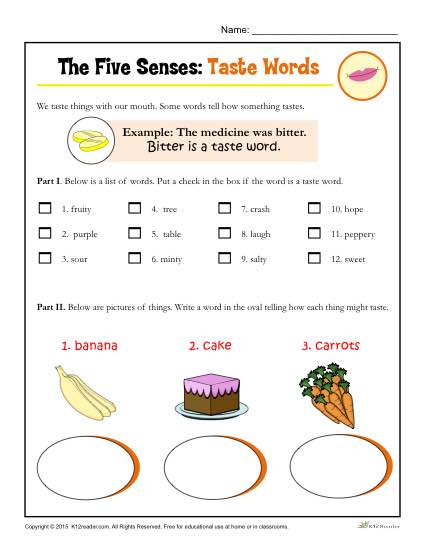
EVALUATION:
Using your dictionary, make a sentence with each of these adjectives.
1. Insipid
2. Acidic
3. Tasty
4. Stale
5. Piquant
LESSON 18
ASPECT: STRUCTURE
TOPIC: Expressing Intention using Intend, Aim + to infinitive
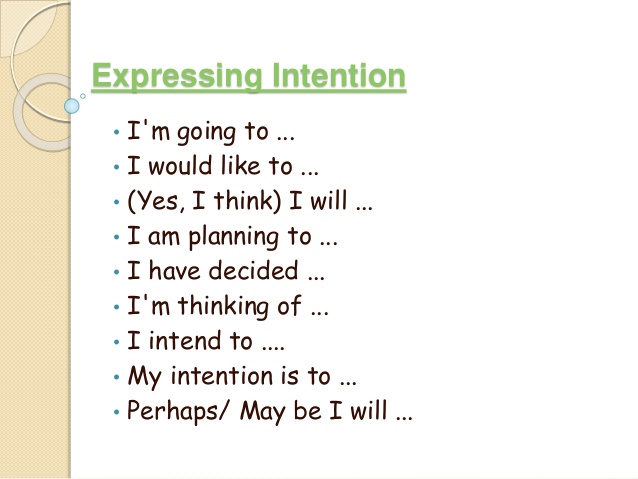
CONTENT: We can express intention by:
1. Using verb+ infinitive: ‘intend’ and ‘aim’
a. I intend to buy a house next year.
b. He intends to cause trouble.
c. I intend to go home.
d. I intend to move into my new apartment next week.
e. The scheme aims to alleviate poverty.
f. They aim to be there by 6pm.
g. The government is aiming to reduce unemployment by 50%.
h. They aim to reach their goal.
LESSON 19
ASPECT: COMPOSITION
TOPIC: DESCRIPTIVE ESSAY
SUB TOPIC: TRAVELLING BY AIR (ORAL DISCUSSION)
https://youtu.be/bRC0I-jLFWs
CONTENT:
Descriptive Essay or Composition aims at describing or giving a vivid picture of a person, event, or a situation.

TRAVELLING BY AIR
There are different means by which people move from one place to another. These means include: on foot, by air, by sea, and on land. Among these means of transportation, air travels seem to be very unique.
Travelling by air has some procedures. First, the TRAVELLER has to know the DESTINATION. Before he travels, he has to BOOK his TICKET with a TRAVEL AGENCY. On getting the ticket, the time of DEPARTURE and the PLANE to FLY will be identified. The traveller has to get to the AIRPORT on time; and wait for the plane at the DEPARTURE LOUNGE before BOARDING the plane. Before the plane can fly, it has to RUN on the RUNWAY before TAKING OFF.
The experiences inside the plane are quite exciting. As a new person, you will be thrilled by the way the PILOT is manipulating the BUTTONS in the COCKPIT. Also, the pleasantries exchanged by the PASSENGERS and the AIR HOSTESSES or CABIN CREW is wonderful.
When the plane is in the air, the passengers have to FASTEN their SEAT BELTS to avoid falling off. In an hour time, an ANNOUNCEMENT of the LANDING of the plane will be made by the CAPTAIN while every instruction given must be adhered to for SAFETY purpose.
Many companies operate air transport system. Some these are: Virgin Nigeria airline, Slok Airline, Air Afrik, KLM, British Airways and many others.
EVALUATION:
1. Mention the major means of transportation.
2. Mention four actions involved in air travel.
3. Define the following words: runway, departure lounge, cockpit, hostess, cabin crew.
LESSON 20
ASPECT: SPEECH WORK
TOPIC: CONSONANT CONTRAST /s/ and /ʃ/
CONTENT:
/s/: is a voiceless alveolar plosive. Word examples are seat, science, cease, axe, sign, piece, pass, hence, hiss, fence, blitz, mix …
/ʃ/: is a voiceless palato-alveolar fricative. Word examples are shoe, sheep, share, dish, passion, douche, mission, champagne, sure, sugar, ruche, chauffeur, Chicago, reschedule …
https://youtu.be/uguN4ghpKtQ
Contrast of /s/ /ʃ/
Sign shine
Mess mesh
Sin shin
Sit shit
Seat sheet
Sort short
Lasses lashes
EVALUATION:
1. /s/ a. advice b. advise c. lose d. shoes
2. /ʃ/ a. ocean b. ask c. casual d. vision
3. /s/ a. cards b. fuse c. feeds d. feast
4. /ʃ/ a. dress b. fish c. house d. was
5. /ʃ/ a. church b. lodge c. preach d. shop
LESSON 21
ASPECT: LITERATURE
TOPIC: POETRY (DRAMATIC)
CONTENT:
Study the poem ‘Eating with All the Fingers’ on page 64 of Literary Compass.
EVALUATION: Answer the objective and essay questions on page 70 and 71
ASSIGNMENT:
Complete the following sentences with the best option from the alternatives lettered A-E.
1. To save the plane in that kind of situation, the ------ should be able to take over effectively.
a. Captain b. co-pilot c. pilot d. crew e. hostess
2. The signal from the ------ indicated that the plane will not be able to land safely.
a. Runway b. control tower c. hangar d. cockpit e. gangway
3. After the plane had managed to land, it took a long time before any passenger could claim their --------- a. board pass b. ticket c. suitcase d. luggage e. bags
4. No plane could ------ until 12 midnight. A. take off b. taxi off c. fly up d. go off e. leave ground.
5. The weather forecast had indicated that ------- in the northern parts of the country would be poor that morning. A conditions b. clouds c. sun shine d. light e. visibility
ASPECT: COMPREHENSION
TOPIC: Information Revolution, Technology Revolution
CONTENT: Junior English Project Book 3; Unit 4, Pages 33-34
VOCABULARY DEVELOPMENT: Modifiers-Adjectives and Adverbs- to do with taste.
Words that have to do with sense of taste are sour, sharp, tasty, insipid, bitter, acidic, stale, piquant, unsavoury, palatable, salty, sugary etc.

EVALUATION:
Using your dictionary, make a sentence with each of these adjectives.
1. Insipid
2. Acidic
3. Tasty
4. Stale
5. Piquant
LESSON 18
ASPECT: STRUCTURE
TOPIC: Expressing Intention using Intend, Aim + to infinitive

CONTENT: We can express intention by:
1. Using verb+ infinitive: ‘intend’ and ‘aim’
a. I intend to buy a house next year.
b. He intends to cause trouble.
c. I intend to go home.
d. I intend to move into my new apartment next week.
e. The scheme aims to alleviate poverty.
f. They aim to be there by 6pm.
g. The government is aiming to reduce unemployment by 50%.
h. They aim to reach their goal.
LESSON 19
ASPECT: COMPOSITION
TOPIC: DESCRIPTIVE ESSAY
SUB TOPIC: TRAVELLING BY AIR (ORAL DISCUSSION)
https://youtu.be/bRC0I-jLFWs
CONTENT:
Descriptive Essay or Composition aims at describing or giving a vivid picture of a person, event, or a situation.

TRAVELLING BY AIR
There are different means by which people move from one place to another. These means include: on foot, by air, by sea, and on land. Among these means of transportation, air travels seem to be very unique.
Travelling by air has some procedures. First, the TRAVELLER has to know the DESTINATION. Before he travels, he has to BOOK his TICKET with a TRAVEL AGENCY. On getting the ticket, the time of DEPARTURE and the PLANE to FLY will be identified. The traveller has to get to the AIRPORT on time; and wait for the plane at the DEPARTURE LOUNGE before BOARDING the plane. Before the plane can fly, it has to RUN on the RUNWAY before TAKING OFF.
The experiences inside the plane are quite exciting. As a new person, you will be thrilled by the way the PILOT is manipulating the BUTTONS in the COCKPIT. Also, the pleasantries exchanged by the PASSENGERS and the AIR HOSTESSES or CABIN CREW is wonderful.
When the plane is in the air, the passengers have to FASTEN their SEAT BELTS to avoid falling off. In an hour time, an ANNOUNCEMENT of the LANDING of the plane will be made by the CAPTAIN while every instruction given must be adhered to for SAFETY purpose.
Many companies operate air transport system. Some these are: Virgin Nigeria airline, Slok Airline, Air Afrik, KLM, British Airways and many others.
EVALUATION:
1. Mention the major means of transportation.
2. Mention four actions involved in air travel.
3. Define the following words: runway, departure lounge, cockpit, hostess, cabin crew.
LESSON 20
ASPECT: SPEECH WORK
TOPIC: CONSONANT CONTRAST /s/ and /ʃ/
CONTENT:
/s/: is a voiceless alveolar plosive. Word examples are seat, science, cease, axe, sign, piece, pass, hence, hiss, fence, blitz, mix …
/ʃ/: is a voiceless palato-alveolar fricative. Word examples are shoe, sheep, share, dish, passion, douche, mission, champagne, sure, sugar, ruche, chauffeur, Chicago, reschedule …
https://youtu.be/uguN4ghpKtQ
Contrast of /s/ /ʃ/
Sign shine
Mess mesh
Sin shin
Sit shit
Seat sheet
Sort short
Lasses lashes
EVALUATION:
1. /s/ a. advice b. advise c. lose d. shoes
2. /ʃ/ a. ocean b. ask c. casual d. vision
3. /s/ a. cards b. fuse c. feeds d. feast
4. /ʃ/ a. dress b. fish c. house d. was
5. /ʃ/ a. church b. lodge c. preach d. shop
LESSON 21
ASPECT: LITERATURE
TOPIC: POETRY (DRAMATIC)
CONTENT:
Study the poem ‘Eating with All the Fingers’ on page 64 of Literary Compass.
EVALUATION: Answer the objective and essay questions on page 70 and 71
ASSIGNMENT:
Complete the following sentences with the best option from the alternatives lettered A-E.
1. To save the plane in that kind of situation, the ------ should be able to take over effectively.
a. Captain b. co-pilot c. pilot d. crew e. hostess
2. The signal from the ------ indicated that the plane will not be able to land safely.
a. Runway b. control tower c. hangar d. cockpit e. gangway
3. After the plane had managed to land, it took a long time before any passenger could claim their --------- a. board pass b. ticket c. suitcase d. luggage e. bags
4. No plane could ------ until 12 midnight. A. take off b. taxi off c. fly up d. go off e. leave ground.
5. The weather forecast had indicated that ------- in the northern parts of the country would be poor that morning. A conditions b. clouds c. sun shine d. light e. visibility
WEEK 6
LESSON 22
ASPECT: COMPREHENSION
TOPIC: STUDYING A NOVEL (THE ACCIDENT)
Reading: This extract comes from Chinua Achebe’s fourth novel, ‘A Man of The People’. Odili, the hero, is giving Edna a lift on his bicycle to visit her mother in hospital…

EVALUATION: Questions 2 (Answer questions 1-5) on page 43.
Vocabulary Development: (Modifiers- Adverbs of movement) Page 44 of Junior English Project for Secondary Schools Book 3.
ASSIGNMENT: Questions 4 page 44 and questions 5 page 48.
LESSON 23
ASPECT: STRUCTURE
TOPIC: Expressing permission using can, could, may, and would.
CONTENT: The words can, could, may, might and would are verbs called modal verbs.

Requesting/giving permission: Can and could. There are various ways of expressing the idea of permission in English. The most common one is using the modal verb can: can I borrow your dictionary? Can I see you now please? Etc. We use could when we are not sure of the answer. This is also more polite:
A: Could I borrow your pen, please?
B: Certainly.
Reference to Grammar on page 153 of English Project.
Using May and Might: Using may is more polite than can and could:
STUDENT: May I leave the room, please?
TEACHER: Yes, you may.
We very occasionally use might if we are being particularly polite or respectful: Example
STUDENT: Excuse me, sir. Might I possibly borrow your dictionary for a moment?
TEACHER: I suppose so.
Or we may use the expression would you mind if/would you mind my (verb+ing) Example
STUDENT: Excuse me, sir. Would you mind my borrowing the dictionary for a moment?
TEACHER: With pleasure!
NOTE: We use these forms according to the level of formality, and/or the degree of hesitation involved:
Can ------- informal. No hesitation involved.
Could------ slightly more formal and hesitant.
May------- formal, very polite and hesitant.
Might-------would you mind-----formal, extremely polite and hesitant.
ASSIGNMENT: Write ten sentences using can, could, may, might and would.
LESSON 24
ASPECT: COMPOSITION
TOPIC: SEMI-FORMAL LETTER
SUB-TOPIC: A letter to your class teacher on your absence from school.
CONTENT:
Before proceeding to the topic at hand, it is suffice to take note of the features of semi-formal letter.
Semi-formal letters are letters you write to your parents, aunts and uncles (or some other older relation), to older friends, or to some other people you know but are not very familiar with (e.g. a pen-friend you have never met). Semi-formal letters are thus different from formal letters, which you write to people in positions of authority in government offices and in private organizations. They are also different from informal letters, which you write to close friends or relations of about your own age.
1. The writer’s address and the date written just the way they are written in Formal and Informal letters.
2. The salutation to be Dear Mother, Dear Mummy, Dear Mum, My dear Mother, Mummy, Mum or Father/Dad etc. the salutation should be Dear Uncle, Dear Uncle Joe, My dear Uncle, Dear Aunt, Dear Aunty /Auntie, Dear Auntie Jamaila, My dear Auntie, Dear Brother, Dear Brother Akpan, Dear Sister, Dear Sister Chinyere, Dear Suleiman, Dear Mr. Ojo, Dear Dr. Chike, Dear Professor Samuel, Dear Alhaji Garuba, Dear Professor etc.
3. The body of the letter: The content of the semi-formal letter (like the content of any of the other types) is determined by the topic you are asked to write on by the examiner. You think carefully about the topic, and identify the main points. Each of these main points will then be developed in one paragraph in the main body of the letter. With regard to the opening and concluding paragraphs, semi-formal letters are like the informal letters. This is because the opening paragraph is expected to contain greetings and pleasantries (questions about the welfare of the recipient’s family, business, etc. And the concluding paragraph is expected to send prayers and good wishes to the recipient and to other people well known to to both the writer and the recipient. However, if the recipient is not well known, the opening and concluding paragraphs may be much less concerned with greetings and pleasantries. It is very important to show in the language used the kind of respect you have for the recipient in real life. Although shortened forms (eg I’ve, you can’t etc) may be used in the semi-formal letter, there should be great care in using slang words and expressions. You should not use words or expressions you cannot when talking to the recipient in real life. The language should be polite.
4. The ending of the letter: The examiner will be satisfied if you use Yours sincerely as complimentary close in your semi-formal-letter followed by your first name e.g
Yours sincerely,
Ruth.
ASSIGNMENT: With these format write a letter on the topic: A letter to your class teacher on your absence from school
LESSON 25
ASPECT: SPEECH WORK-
TOPIC: Consonant Contrast /tʃ/ and /ʃ/
Content:
/tʃ/: is a voiceless palato-alveolar affricate. The spelling symbols for /tʃ/ are listed below:
-ch as in chief
-ture as in mature
-teous as in righteous
-tual as in ritual
https://youtu.be/6SreswdXlAk
/ʃ/ is therefore, a voiceless palato-alveolar fricative and it has many spelling symbols which are listed below:
sh as in shop
s as in sure
ci as in special
c as in ocean
ch as in moustache
ti as in nation
ss as in mission
https://youtu.be/iDjAf2AhjRc
Sound Contrasts:
/ʃ/ /tʃ/
Shop chop
Ship chip
Cash catch
Dish ditch
Wish witch
ASSIGNMENT: Write ten words each on /ʃ/ and /tʃ/.
LESSON 26
ASPECT: Literature
TOPIC: Drama
Study the drama text ‘Two to Tango’ by Chijoke Ugwu
ASSIGNMENT:
Study the summary of ‘Two to Tango’ by Chijoke Ugwu in Literary Compass and answer the questions on pages 88-89
ASPECT: COMPREHENSION
TOPIC: STUDYING A NOVEL (THE ACCIDENT)
Reading: This extract comes from Chinua Achebe’s fourth novel, ‘A Man of The People’. Odili, the hero, is giving Edna a lift on his bicycle to visit her mother in hospital…

EVALUATION: Questions 2 (Answer questions 1-5) on page 43.
Vocabulary Development: (Modifiers- Adverbs of movement) Page 44 of Junior English Project for Secondary Schools Book 3.
ASSIGNMENT: Questions 4 page 44 and questions 5 page 48.
LESSON 23
ASPECT: STRUCTURE
TOPIC: Expressing permission using can, could, may, and would.
CONTENT: The words can, could, may, might and would are verbs called modal verbs.

Requesting/giving permission: Can and could. There are various ways of expressing the idea of permission in English. The most common one is using the modal verb can: can I borrow your dictionary? Can I see you now please? Etc. We use could when we are not sure of the answer. This is also more polite:
A: Could I borrow your pen, please?
B: Certainly.
Reference to Grammar on page 153 of English Project.
Using May and Might: Using may is more polite than can and could:
STUDENT: May I leave the room, please?
TEACHER: Yes, you may.
We very occasionally use might if we are being particularly polite or respectful: Example
STUDENT: Excuse me, sir. Might I possibly borrow your dictionary for a moment?
TEACHER: I suppose so.
Or we may use the expression would you mind if/would you mind my (verb+ing) Example
STUDENT: Excuse me, sir. Would you mind my borrowing the dictionary for a moment?
TEACHER: With pleasure!
NOTE: We use these forms according to the level of formality, and/or the degree of hesitation involved:
Can ------- informal. No hesitation involved.
Could------ slightly more formal and hesitant.
May------- formal, very polite and hesitant.
Might-------would you mind-----formal, extremely polite and hesitant.
ASSIGNMENT: Write ten sentences using can, could, may, might and would.
LESSON 24
ASPECT: COMPOSITION
TOPIC: SEMI-FORMAL LETTER
SUB-TOPIC: A letter to your class teacher on your absence from school.
CONTENT:
Before proceeding to the topic at hand, it is suffice to take note of the features of semi-formal letter.
Semi-formal letters are letters you write to your parents, aunts and uncles (or some other older relation), to older friends, or to some other people you know but are not very familiar with (e.g. a pen-friend you have never met). Semi-formal letters are thus different from formal letters, which you write to people in positions of authority in government offices and in private organizations. They are also different from informal letters, which you write to close friends or relations of about your own age.
1. The writer’s address and the date written just the way they are written in Formal and Informal letters.
2. The salutation to be Dear Mother, Dear Mummy, Dear Mum, My dear Mother, Mummy, Mum or Father/Dad etc. the salutation should be Dear Uncle, Dear Uncle Joe, My dear Uncle, Dear Aunt, Dear Aunty /Auntie, Dear Auntie Jamaila, My dear Auntie, Dear Brother, Dear Brother Akpan, Dear Sister, Dear Sister Chinyere, Dear Suleiman, Dear Mr. Ojo, Dear Dr. Chike, Dear Professor Samuel, Dear Alhaji Garuba, Dear Professor etc.
3. The body of the letter: The content of the semi-formal letter (like the content of any of the other types) is determined by the topic you are asked to write on by the examiner. You think carefully about the topic, and identify the main points. Each of these main points will then be developed in one paragraph in the main body of the letter. With regard to the opening and concluding paragraphs, semi-formal letters are like the informal letters. This is because the opening paragraph is expected to contain greetings and pleasantries (questions about the welfare of the recipient’s family, business, etc. And the concluding paragraph is expected to send prayers and good wishes to the recipient and to other people well known to to both the writer and the recipient. However, if the recipient is not well known, the opening and concluding paragraphs may be much less concerned with greetings and pleasantries. It is very important to show in the language used the kind of respect you have for the recipient in real life. Although shortened forms (eg I’ve, you can’t etc) may be used in the semi-formal letter, there should be great care in using slang words and expressions. You should not use words or expressions you cannot when talking to the recipient in real life. The language should be polite.
4. The ending of the letter: The examiner will be satisfied if you use Yours sincerely as complimentary close in your semi-formal-letter followed by your first name e.g
Yours sincerely,
Ruth.
ASSIGNMENT: With these format write a letter on the topic: A letter to your class teacher on your absence from school
LESSON 25
ASPECT: SPEECH WORK-
TOPIC: Consonant Contrast /tʃ/ and /ʃ/
Content:
/tʃ/: is a voiceless palato-alveolar affricate. The spelling symbols for /tʃ/ are listed below:
-ch as in chief
-ture as in mature
-teous as in righteous
-tual as in ritual
https://youtu.be/6SreswdXlAk
/ʃ/ is therefore, a voiceless palato-alveolar fricative and it has many spelling symbols which are listed below:
sh as in shop
s as in sure
ci as in special
c as in ocean
ch as in moustache
ti as in nation
ss as in mission
https://youtu.be/iDjAf2AhjRc
Sound Contrasts:
/ʃ/ /tʃ/
Shop chop
Ship chip
Cash catch
Dish ditch
Wish witch
ASSIGNMENT: Write ten words each on /ʃ/ and /tʃ/.
LESSON 26
ASPECT: Literature
TOPIC: Drama
Study the drama text ‘Two to Tango’ by Chijoke Ugwu
ASSIGNMENT:
Study the summary of ‘Two to Tango’ by Chijoke Ugwu in Literary Compass and answer the questions on pages 88-89
WEEK 7
LESSON 27
ASPECT: COMPREHENSION
TOPIC: AIR TRAVEL (UNIT 6)
CONTENT: Reading- This comes from a travel magazine. Ojo is a businessman who decides to get a travel agency to organize his trip to Accra in Ghana. Survey Part 1 as quickly as can to find out the details of his visit. Then close your books and tell your teacher what you found out.

EVALUATIONS: Answer questions 2, 1-8 on page 54.
VOCABULARY DEVELOPMENT: (Word Building Using Antonyms Opposite and using Prefixes e.g. inform-misinform) .
CONTENT: The prefixes: dis-, il-, im-, in-, ir-, non- all mean NOT. Mal- and mis- mean BADLY OR WRONGLY. Anti- and contra- mean AGAINST.
acceptable comparable function
adjusted convenient lead
agree definable legal
appear dependable logical
armament desirable regular
bearable diction responsible
belief different social etc.
Reliable, fortunately, helpful, changing, careful, usually, important, decided, appear, formality
ASSIGNMENT: Make the above words opposite in meaning to the original words by adding the right prefix (morpheme).
LESSON 28
ASPECT: STRUCTURE
TOPIC: Expressing obligation and necessity using: must, have to, need, ought to, etc.
CONTENT:
Expressing obligation and necessity:
An obligation is something that we are expected to do. Some obligations are stronger than others. Below is a note on each of the verbs used as obligations/necessity.

Should: Should generally mean ‘in my opinion it is a good idea to do something’. It is desirable and advisable. In the past, we ‘should have’. Examples:
A: That’s a bad cough! You should stop smoking.
B: I know! I should have stopped smoking a long time ago.
Ought to: This can be slightly stronger than should in meaning. It is often used to refer to rules and regulations. In questions, we use should. In informal English, we often use ‘to be supposed to’ to talk about rules. Example:
A: Should we invite Mary to the party?
B: We ought to. She invited us to hers!
C: Are we allowed to buy food at the gate?
D: Yes, but you’re not supposed to go to the market during school hours.
Had better: Stronger than should /ought to, it is recommended future action on a particular occasion. It implies a warning, or a touch of urgency. Examples:
A: You look terrible! You’d better ask the teacher if you can be excused PE.
B: Perhaps, you’re right. I think I may have a temperature.
A: in that case, you had to see a doctor.
Am/is/are to: These forms can be used to issue (or report on) instructions as well as indicate arrangements.
Examples:
A: All new students are to report to the Principal at two.
B: What did you say?
A: You are to report to the Principal at two.
Need (to): This means that it is necessary to do something.
Example: All new students need to spend time on revision before examinations.
Have to/have got to: this act as an alternative to must. We use ‘had to’ instead of ‘must’ when talking about the past.
Example:
A: When I was at school ,we had to get up at five every morning.
B: Really? These days, we have to be up by six.
Must: this modal verb expresses absolute necessity. In the speaker’s opinion, there is no choice! Often used in public notices.
Example: John must go to school early because of the exam. He sent for me and I must go immediately.
ASSIGNMENT: Test on expressing obligation and necessity, (page 92) of Junior English Project Book 3.
https://drive.google.com/file/d/1NaSAxP ... sp=sharing
LESSON 29
ASPECT: COMPOSITION (ORAL).
TOPIC: “Corruption is worse than armed robbery”
CONTENT:
What is corruption?
What does armed robbery mean?
Now, what effect does corruption and armed robbery have on the society? When critically looked at, the twin social vices are bad in themselves but it depends on how many convincing points the proposal/opponent is able to raise.

NOTE:
This topic is to be discussed in the class with the students. Points are to be raised by the students while the educator corrects and guide them where necessary. This topic is debatable, that is, one can choose to support or oppose it. It depends on the angle one is looking at it.
LESSON 30
ASPECT: Speech Work
TOPIC: Consonant Contrast /tʃ/ and /ʃ/
CONTENT: Repeat last lesson on /tʃ/ and /ʃ/
https://youtu.be/e8TsC6gQ_cc
https://youtu.be/DzfAoJHIw84
EVALUATION: Practise the dialogue exercise on page 74 of Junior English Project.
ASSIGNMENT: Write five word examples of /tʃ/ and /ʃ/.
ASPECT: LITERATURE
TOPIC: DRAMA- Use recommended text.
Study the drama text ‘Two to Tango’ by Chijoke Ugwu
ASPECT: COMPREHENSION
TOPIC: AIR TRAVEL (UNIT 6)
CONTENT: Reading- This comes from a travel magazine. Ojo is a businessman who decides to get a travel agency to organize his trip to Accra in Ghana. Survey Part 1 as quickly as can to find out the details of his visit. Then close your books and tell your teacher what you found out.

EVALUATIONS: Answer questions 2, 1-8 on page 54.
VOCABULARY DEVELOPMENT: (Word Building Using Antonyms Opposite and using Prefixes e.g. inform-misinform) .
CONTENT: The prefixes: dis-, il-, im-, in-, ir-, non- all mean NOT. Mal- and mis- mean BADLY OR WRONGLY. Anti- and contra- mean AGAINST.
acceptable comparable function
adjusted convenient lead
agree definable legal
appear dependable logical
armament desirable regular
bearable diction responsible
belief different social etc.
Reliable, fortunately, helpful, changing, careful, usually, important, decided, appear, formality
ASSIGNMENT: Make the above words opposite in meaning to the original words by adding the right prefix (morpheme).
LESSON 28
ASPECT: STRUCTURE
TOPIC: Expressing obligation and necessity using: must, have to, need, ought to, etc.
CONTENT:
Expressing obligation and necessity:
An obligation is something that we are expected to do. Some obligations are stronger than others. Below is a note on each of the verbs used as obligations/necessity.

Should: Should generally mean ‘in my opinion it is a good idea to do something’. It is desirable and advisable. In the past, we ‘should have’. Examples:
A: That’s a bad cough! You should stop smoking.
B: I know! I should have stopped smoking a long time ago.
Ought to: This can be slightly stronger than should in meaning. It is often used to refer to rules and regulations. In questions, we use should. In informal English, we often use ‘to be supposed to’ to talk about rules. Example:
A: Should we invite Mary to the party?
B: We ought to. She invited us to hers!
C: Are we allowed to buy food at the gate?
D: Yes, but you’re not supposed to go to the market during school hours.
Had better: Stronger than should /ought to, it is recommended future action on a particular occasion. It implies a warning, or a touch of urgency. Examples:
A: You look terrible! You’d better ask the teacher if you can be excused PE.
B: Perhaps, you’re right. I think I may have a temperature.
A: in that case, you had to see a doctor.
Am/is/are to: These forms can be used to issue (or report on) instructions as well as indicate arrangements.
Examples:
A: All new students are to report to the Principal at two.
B: What did you say?
A: You are to report to the Principal at two.
Need (to): This means that it is necessary to do something.
Example: All new students need to spend time on revision before examinations.
Have to/have got to: this act as an alternative to must. We use ‘had to’ instead of ‘must’ when talking about the past.
Example:
A: When I was at school ,we had to get up at five every morning.
B: Really? These days, we have to be up by six.
Must: this modal verb expresses absolute necessity. In the speaker’s opinion, there is no choice! Often used in public notices.
Example: John must go to school early because of the exam. He sent for me and I must go immediately.
ASSIGNMENT: Test on expressing obligation and necessity, (page 92) of Junior English Project Book 3.
https://drive.google.com/file/d/1NaSAxP ... sp=sharing
LESSON 29
ASPECT: COMPOSITION (ORAL).
TOPIC: “Corruption is worse than armed robbery”
CONTENT:
What is corruption?
What does armed robbery mean?
Now, what effect does corruption and armed robbery have on the society? When critically looked at, the twin social vices are bad in themselves but it depends on how many convincing points the proposal/opponent is able to raise.

NOTE:
This topic is to be discussed in the class with the students. Points are to be raised by the students while the educator corrects and guide them where necessary. This topic is debatable, that is, one can choose to support or oppose it. It depends on the angle one is looking at it.
LESSON 30
ASPECT: Speech Work
TOPIC: Consonant Contrast /tʃ/ and /ʃ/
CONTENT: Repeat last lesson on /tʃ/ and /ʃ/
https://youtu.be/e8TsC6gQ_cc
https://youtu.be/DzfAoJHIw84
EVALUATION: Practise the dialogue exercise on page 74 of Junior English Project.
ASSIGNMENT: Write five word examples of /tʃ/ and /ʃ/.
ASPECT: LITERATURE
TOPIC: DRAMA- Use recommended text.
Study the drama text ‘Two to Tango’ by Chijoke Ugwu
WEEK 8
LESSON 31
ASPECT: Comprehension Passage
TOPIC: “The World of Work” (All in a day’s work)
CONTENT: Before you read, do you ever wonder what it may be like to get a job after you finish at school? The best way to find out what a job is really all about is to talk to someone who does it. In this newspaper report, Emily Ikwueze asked Rafiu Tijani about his job as an apprentice motor mechanic in large specialist garage. Junior English Project Book 3 page 67-68.

EVALUATION: Comprehension Question 2 (page 66) and Summary Question 4 (page 67).
VOCABULARY DEVELOPMENT:
Word Building Using prefixes-un, non, dis, mal, mis, rel, pre, ex, sub, etc suitable-unsuitable, appear-disappear, adjust-maladjust-, sense-nonsense, represent-misrepresent, season-pre-season, etc.
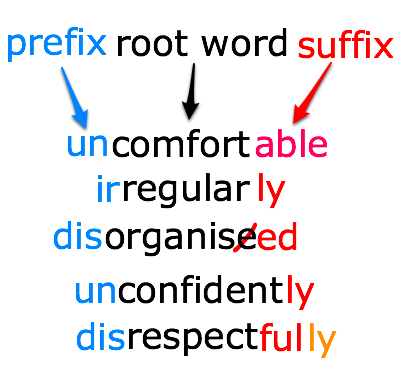
un- many adjectives formed with un- have special (usually unfavorable) meanings, for example, unfavorable and unprofessional etc.
Pre- can mean any of the following: 1. Before, earlier e.g. preschool, predate etc. 2. In advance, preparatory e.g. presale, pre-release etc 3. In front of e.g. premolar
ex- can mean any of the following: 1. out, outside, away e.g. exclave, explants, 2. Not, without 3. Former e.g. ex-convict, ex-wife, ex-service, ex-serviceman etc.
sub- summarily put in Latin word means under
ASSIGNMENT: Find the meaning of these prefixes: ante, auto, bi, co, counter, fore, inter, mono, post, pro, semi, tele, trans, tri.
LESSON 32
ASPECT: Structure
TOPIC: Expressing Possibility Using: may, can, might, could.
CONTENT:
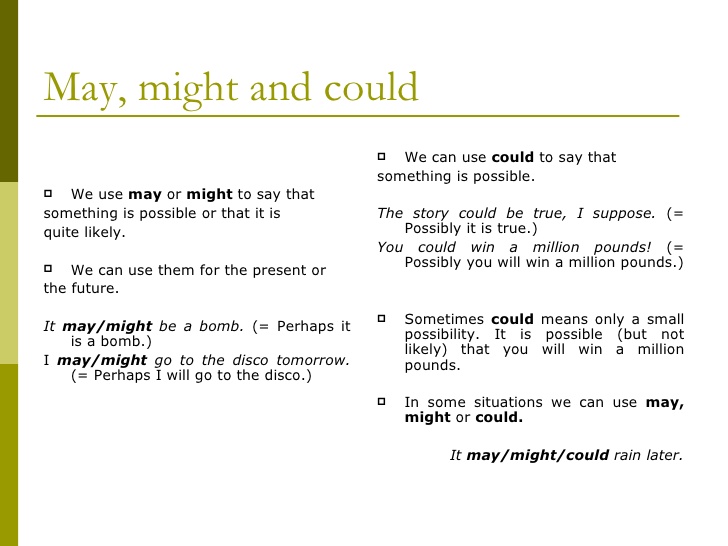
If we are certain that something is true, we simply make a statement. In all these examples, the speakers believe that what they are saying is true: (a) Zimbabwe is a country in Central Africa. (b) Zimbabwe becomes free in 1980. (c) Nigeria will play an important part in shaping tomorrow’s world. If we are less certain, we use the modal verbs can, could, may, and might.
Must be: This expresses certainty. A verb without a modal indicates that the speaker believes she is stating the truth. E.g. Zimbabwe must be a country in Central Africa.
Could (be): Expresses doubtful possibility. E.g. you could be right about that.
Should (be)/ought to (be): both these forms express a doubtful possibility. E.g. it should tell us in an atlas. Yes, an atlas ought to tell us where it is.
May (be): The use of ‘may’ means the speaker thinks something is possible, but uncertain. E.g. It may tell us in our geography book. Yes, it may be there, I suppose.
Might (be): Might indicate even less certain than may. E.g. Mazurka might know.
EVALUATION: Exercise on Talking about possibility in the past 2 page 98 of Junior English Project.
ASSIGNMENT: Test on expressing possibility on page 111 of English Project.
LESSON 33
ASPECT: Composition (Written)
TOPIC: “Corruption is Worse than Armed robbery”
CONTENT: Students should write points on this topic for a likely debate.
EVALUATION:
Your school was invited for a debate on the topic ‘Corruption is Worse than Armed Robbery’ write your points for or against.
LESSON 34
ASPECT: Speech Work
TOPIC: Consonant /l/ and /r/
CONTENT:
The /l/ sound: To pronounce the /l/ sound, the tip of the tongue touches the top of your mouth, just behind your teeth. The air comes from your throat, passing on either side of the tongue. The sound is voiced. The /l/ sound is always spelt with the letter l. however, it is silent in the following: half, talk, palm, should, salmon, halve, chalk, psalm, would, colonel etc.
https://youtu.be/td5Ev6wY0tU
The /r/ sound: To pronounce the /r/ sound, you place the tip of your tongue very near the top of your mouth, just behind your teeth. The rest of the tongue remains low. You expel air from your throat, through rather rounded lips. The sound is voiced.
Sound Contrasts:
/l/ /r/
glass grass
pleasant present
player prayer
loyal royal
Exercise: Try to say this tongue-twister three times: ‘red leather, yellow leather’.
ASSIGNMENT: Write ten words example on each of the sounds.
LESSON 35
ASPECT: Literature
TOPIC: Drama
CONTENT: Use recommended text.
Study the drama text ‘Zumji and Uchenna’ by Pierre Meunier.
EVALUATION:
Read the summary and analysis of ‘Zumji and Uchenna’ by Pierre Meunier in Literary Compass and answer the objective questions.
ASPECT: Comprehension Passage
TOPIC: “The World of Work” (All in a day’s work)
CONTENT: Before you read, do you ever wonder what it may be like to get a job after you finish at school? The best way to find out what a job is really all about is to talk to someone who does it. In this newspaper report, Emily Ikwueze asked Rafiu Tijani about his job as an apprentice motor mechanic in large specialist garage. Junior English Project Book 3 page 67-68.

EVALUATION: Comprehension Question 2 (page 66) and Summary Question 4 (page 67).
VOCABULARY DEVELOPMENT:
Word Building Using prefixes-un, non, dis, mal, mis, rel, pre, ex, sub, etc suitable-unsuitable, appear-disappear, adjust-maladjust-, sense-nonsense, represent-misrepresent, season-pre-season, etc.

un- many adjectives formed with un- have special (usually unfavorable) meanings, for example, unfavorable and unprofessional etc.
Pre- can mean any of the following: 1. Before, earlier e.g. preschool, predate etc. 2. In advance, preparatory e.g. presale, pre-release etc 3. In front of e.g. premolar
ex- can mean any of the following: 1. out, outside, away e.g. exclave, explants, 2. Not, without 3. Former e.g. ex-convict, ex-wife, ex-service, ex-serviceman etc.
sub- summarily put in Latin word means under
ASSIGNMENT: Find the meaning of these prefixes: ante, auto, bi, co, counter, fore, inter, mono, post, pro, semi, tele, trans, tri.
LESSON 32
ASPECT: Structure
TOPIC: Expressing Possibility Using: may, can, might, could.
CONTENT:

If we are certain that something is true, we simply make a statement. In all these examples, the speakers believe that what they are saying is true: (a) Zimbabwe is a country in Central Africa. (b) Zimbabwe becomes free in 1980. (c) Nigeria will play an important part in shaping tomorrow’s world. If we are less certain, we use the modal verbs can, could, may, and might.
Must be: This expresses certainty. A verb without a modal indicates that the speaker believes she is stating the truth. E.g. Zimbabwe must be a country in Central Africa.
Could (be): Expresses doubtful possibility. E.g. you could be right about that.
Should (be)/ought to (be): both these forms express a doubtful possibility. E.g. it should tell us in an atlas. Yes, an atlas ought to tell us where it is.
May (be): The use of ‘may’ means the speaker thinks something is possible, but uncertain. E.g. It may tell us in our geography book. Yes, it may be there, I suppose.
Might (be): Might indicate even less certain than may. E.g. Mazurka might know.
EVALUATION: Exercise on Talking about possibility in the past 2 page 98 of Junior English Project.
ASSIGNMENT: Test on expressing possibility on page 111 of English Project.
LESSON 33
ASPECT: Composition (Written)
TOPIC: “Corruption is Worse than Armed robbery”
CONTENT: Students should write points on this topic for a likely debate.
EVALUATION:
Your school was invited for a debate on the topic ‘Corruption is Worse than Armed Robbery’ write your points for or against.
LESSON 34
ASPECT: Speech Work
TOPIC: Consonant /l/ and /r/
CONTENT:
The /l/ sound: To pronounce the /l/ sound, the tip of the tongue touches the top of your mouth, just behind your teeth. The air comes from your throat, passing on either side of the tongue. The sound is voiced. The /l/ sound is always spelt with the letter l. however, it is silent in the following: half, talk, palm, should, salmon, halve, chalk, psalm, would, colonel etc.
https://youtu.be/td5Ev6wY0tU
The /r/ sound: To pronounce the /r/ sound, you place the tip of your tongue very near the top of your mouth, just behind your teeth. The rest of the tongue remains low. You expel air from your throat, through rather rounded lips. The sound is voiced.
Sound Contrasts:
/l/ /r/
glass grass
pleasant present
player prayer
loyal royal
Exercise: Try to say this tongue-twister three times: ‘red leather, yellow leather’.
ASSIGNMENT: Write ten words example on each of the sounds.
LESSON 35
ASPECT: Literature
TOPIC: Drama
CONTENT: Use recommended text.
Study the drama text ‘Zumji and Uchenna’ by Pierre Meunier.
EVALUATION:
Read the summary and analysis of ‘Zumji and Uchenna’ by Pierre Meunier in Literary Compass and answer the objective questions.
WEEK 9
LESSON 36
ASPECT: Comprehension
TOPIC: “Problems and Solution”
SUB-TOPIC: AID (1&2).
Unit 8 Page 75-77.
CONTENT: You must have heard a great deal about the incurable AIDS. ‘AIDS’ stands for ‘Acquired Immune Deficiency Syndrome’.

EVALUATION: Question 3 on page 76 and question 5 on page 77.
ASSIGNMENT: Test 2 questions on page 80 and 84.
LESSON 37
ASPECT: Structure
TOPIC: Expressing ability using: can, be able, to be capable of, e.g.
can: is used to express ability as in these examples:
(i) I can play football very well.
(ii) Nigeria can become industrialized country.
‘Is able to’ and ‘is capable of’ are also used to express ability e.g.
a. John is able to take the same exams as other students.
ii. Lizzy is capable of cooking her meal herself.
https://youtu.be/MCC3PFY1jDY
EVALUATION: Test on expressing ability on page 111.
LESSON 38
ASPECT: Composition-Speeches
TOPIC: ‘Trouble at School’ (oral and written).
CONTENT: How to write a speech.
A speech should take into account three main factors:
1. Situation: What is the occasion? Formal, semi-formal, or informal?
2. Audience: Just your fellow students or very mixed?
3. Purpose: What is the purpose of your speech? What is the purpose of your meeting/occasion? In what way can your speech help the meeting to be successful?
There are two ways of giving speech:
1. Writing it in full: Some people like to write out a speech in full anyway, because it gives them confidence. Even if you do this, however, it is always best to give the speech –not read it. But if you are reading a speech, it is always much more impressive.
2. Writing your speech in note form: Jotting down what you have to say in note form, point by point, is usually a much more effective way of giving a speech. Your audience feels that you will speak more naturally and more interestingly. You may forget a point or two, that is true, but the way you speak will be much more impressive.
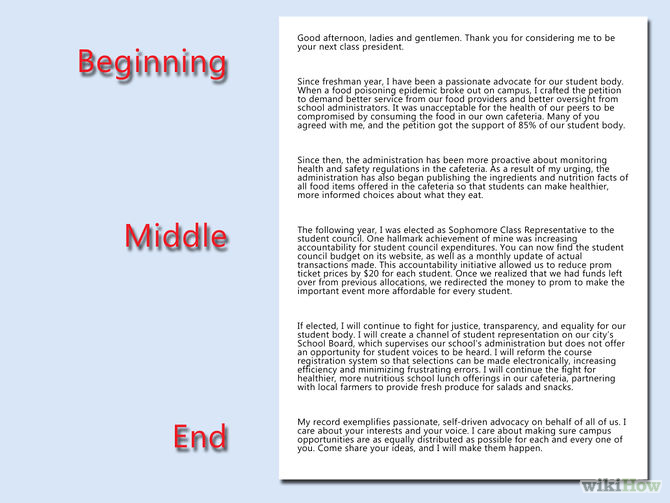
EVALUATION: Let the students discuss the troubles they may be facing at school.
ASSIGNMENT: Write a speech on the topic: ‘Trouble at School’.
LESSON 39
ASPECT: Speech Work
TOPIC: Consonant Sound /h/.
CONTENT:
The /h/ sound only occurs before a vowel. It is produced by expelling air from the mouth (not the mouth). The sound is therefore not voiced. If you can blow out a candle with your mouth open, you can easily produce the /h/ sound. Some Nigerians do not have the /h/ sound in their own language. Other speakers sometimes ‘drop’ the /h/, or use it in the wrong place. Listen and repeat:
/h/
Ear hear
ill hill
eel heel
eating heating
eye high
old hold
Spelling: The /h/ sound is spelt with letter h. However, it can also be spelt with a wh in words such as who, whom, whose, and whole. The letter h is silent in the following words: hour, heir, honour, honest, and honourable; and also in question words what, when, which, and why.
https://youtu.be/kWc-n3ABOiw
EVALUATION: Pronounce the words listed on the table above.
ASSIGNMENT: Apart from the examples given in this lesson, give five words examples on voiced and voiceless /h/.
LESSON 40
ASPECT: Literature
TOPIC: Drama
CONTENT: Use recommended text.
Study the drama text ‘Zumji and Uchenna’ by Pierre Meunier.
EVALUATION:
Read the summary and analysis of ‘Zumji and Uchenna’ by Pierre Meunier in Literary Compass and answer the essay questions.
ASPECT: Comprehension
TOPIC: “Problems and Solution”
SUB-TOPIC: AID (1&2).
Unit 8 Page 75-77.
CONTENT: You must have heard a great deal about the incurable AIDS. ‘AIDS’ stands for ‘Acquired Immune Deficiency Syndrome’.

EVALUATION: Question 3 on page 76 and question 5 on page 77.
ASSIGNMENT: Test 2 questions on page 80 and 84.
LESSON 37
ASPECT: Structure
TOPIC: Expressing ability using: can, be able, to be capable of, e.g.
can: is used to express ability as in these examples:
(i) I can play football very well.
(ii) Nigeria can become industrialized country.
‘Is able to’ and ‘is capable of’ are also used to express ability e.g.
a. John is able to take the same exams as other students.
ii. Lizzy is capable of cooking her meal herself.
https://youtu.be/MCC3PFY1jDY
EVALUATION: Test on expressing ability on page 111.
LESSON 38
ASPECT: Composition-Speeches
TOPIC: ‘Trouble at School’ (oral and written).
CONTENT: How to write a speech.
A speech should take into account three main factors:
1. Situation: What is the occasion? Formal, semi-formal, or informal?
2. Audience: Just your fellow students or very mixed?
3. Purpose: What is the purpose of your speech? What is the purpose of your meeting/occasion? In what way can your speech help the meeting to be successful?
There are two ways of giving speech:
1. Writing it in full: Some people like to write out a speech in full anyway, because it gives them confidence. Even if you do this, however, it is always best to give the speech –not read it. But if you are reading a speech, it is always much more impressive.
2. Writing your speech in note form: Jotting down what you have to say in note form, point by point, is usually a much more effective way of giving a speech. Your audience feels that you will speak more naturally and more interestingly. You may forget a point or two, that is true, but the way you speak will be much more impressive.

EVALUATION: Let the students discuss the troubles they may be facing at school.
ASSIGNMENT: Write a speech on the topic: ‘Trouble at School’.
LESSON 39
ASPECT: Speech Work
TOPIC: Consonant Sound /h/.
CONTENT:
The /h/ sound only occurs before a vowel. It is produced by expelling air from the mouth (not the mouth). The sound is therefore not voiced. If you can blow out a candle with your mouth open, you can easily produce the /h/ sound. Some Nigerians do not have the /h/ sound in their own language. Other speakers sometimes ‘drop’ the /h/, or use it in the wrong place. Listen and repeat:
/h/
Ear hear
ill hill
eel heel
eating heating
eye high
old hold
Spelling: The /h/ sound is spelt with letter h. However, it can also be spelt with a wh in words such as who, whom, whose, and whole. The letter h is silent in the following words: hour, heir, honour, honest, and honourable; and also in question words what, when, which, and why.
https://youtu.be/kWc-n3ABOiw
EVALUATION: Pronounce the words listed on the table above.
ASSIGNMENT: Apart from the examples given in this lesson, give five words examples on voiced and voiceless /h/.
LESSON 40
ASPECT: Literature
TOPIC: Drama
CONTENT: Use recommended text.
Study the drama text ‘Zumji and Uchenna’ by Pierre Meunier.
EVALUATION:
Read the summary and analysis of ‘Zumji and Uchenna’ by Pierre Meunier in Literary Compass and answer the essay questions.